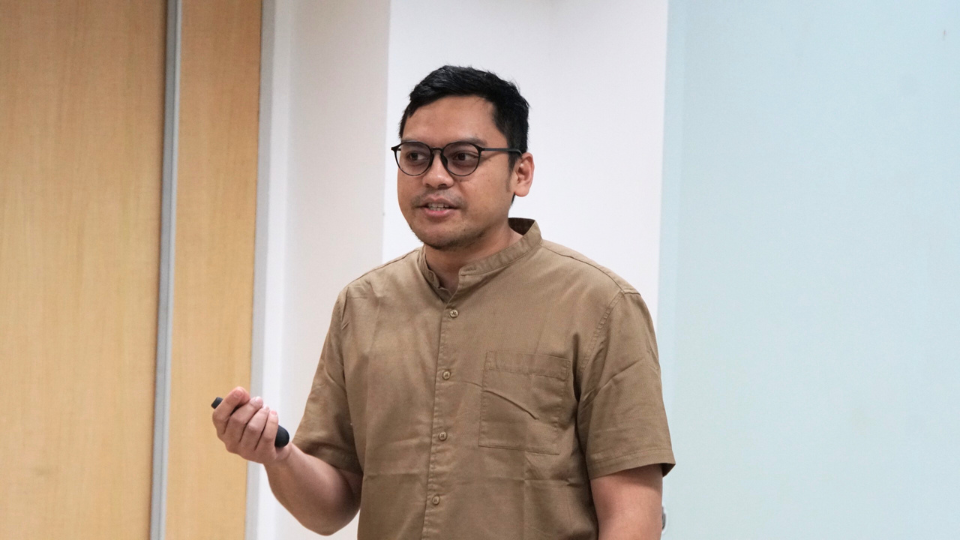Tourism marketing is more than just attracting crowds. Its true essence lies in promoting destinations while considering the long-term impact on local communities and the environment.
This was the key message delivered by Mochamad Nalendra, Founder and CEO of Wise Steps Consulting, during a guest lecture on “Hospitality and Tourism Marketing” at the SBM ITB, on Wednesday (5/14).
Wise Steps Consulting is dedicated to developing sustainable destinations and tourism businesses. With a vision of “using the power of responsible tourism to transform the industry, the traveler’s mindset, and local livelihoods,” the company works with corporations, local communities, and governments to drive change through responsible tourism.
“Tourism is not just about bringing people in; it’s about maintaining a balance between the needs of visitors, local communities, and the environment,” Nalendra emphasized.
Traveling, he said, is a basic human right. On average, about 45 tourists are traveling somewhere in the world every second. However, this massive volume of movement can result in serious negative impacts. Overcrowded destinations often lead to environmental degradation and strain on local populations.
Nalendra introduced Doxey’s Irritation Index, a theory describing how residents’ attitudes toward tourists can shift over time. Initially welcoming, communities may grow apathetic, irritated, and ultimately hostile as tourist numbers rise.
Before the COVID-19 pandemic, the dominant tourism strategy was to attract as many visitors as possible. However, this approach has proven risky. For instance, in Labuan Bajo, the surge in tourism damaged coral reefs and led to plastic waste accumulation, significantly increasing maintenance and management costs.
Today, quantity-driven tourism is no longer a sustainable strategy. Conflicts with residents can occur without proper management and natural resources can be harmed.
As an alternative, Nalendra advocated for sustainable tourism marketing, prioritizing long-term economic, social, and environmental well-being over short-term gains. This model offers various benefits: reduced operational costs, appeal to environmentally conscious tourists, stronger competitive advantage, and improved brand reputation.
He also cautioned against greenwashing, making false or misleading environmental claims, which can erode public trust. Conversely, he addressed greenhushing, where businesses remain silent about their sustainability efforts for fear of criticism. According to Nalendra, transparency is essential to foster collaboration and continuous improvement.
“Sustainability is no longer a choice,” he concluded. “It’s a necessity.”






